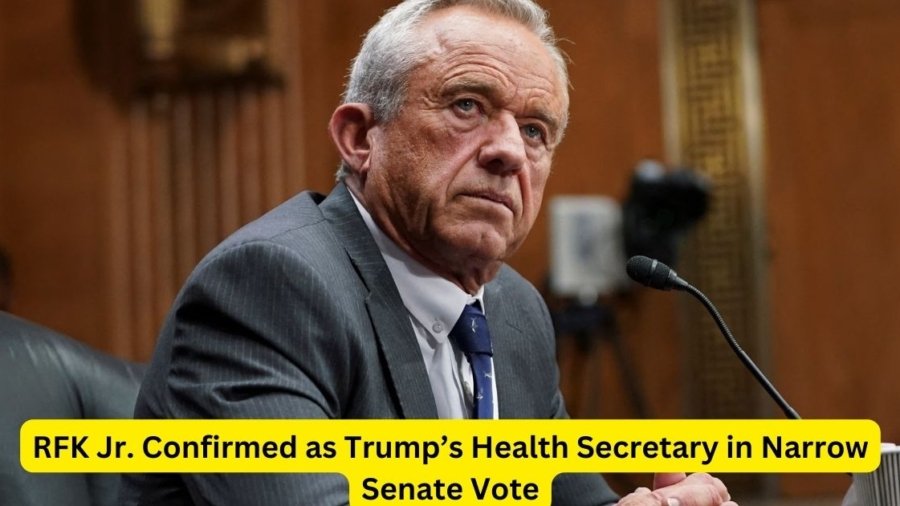Publisher: Bouncer News | Author: Abdul Jabbar
Washington, D.C. – Robert F. Kennedy Jr., a well-known attorney and outspoken critic of vaccines, has been confirmed as the new U.S. Secretary of Health and Human Services (HHS) in a closely contested 52-48 Senate vote on Thursday morning.
The role of HHS Secretary comes with immense responsibility, overseeing a $1.7 trillion budget that funds vaccine programs, food safety regulations, Medicare, Medicaid, medical research, and public health initiatives. The department also plays a crucial role in managing hospital regulations and supporting community health clinics across the country.
Despite facing resistance from some Republican lawmakers due to his controversial stance on vaccines, Kennedy secured enough votes for confirmation. Many GOP senators rallied behind his vision, adopting his new slogan, “Make America Healthy Again” (MAHA), as they endorsed his appointment.
However, not all Republicans were on board. Senate Minority Leader Mitch McConnell, a polio survivor, was the only GOP senator to oppose Kennedy’s confirmation. The Kentucky senator issued a strong statement criticizing Kennedy’s history of promoting conspiracy theories that, he argued, undermine trust in public health institutions.
“Every American has the right to advocate for a healthier nation and demand sound scientific guidance,” McConnell stated. “But pushing misinformation and fostering distrust in vital health organizations disqualifies Mr. Kennedy from leading these efforts. I cannot support a nominee who seeks to re-litigate well-established medical advancements.”
Kennedy, 71, has long been a controversial figure, gaining a substantial following due to his views on vaccines, food safety, and environmental health. His advocacy gained momentum during the COVID-19 pandemic when he led legal efforts against vaccine manufacturers and used social media to cast doubt on public health guidelines.
During his confirmation hearings, Kennedy pledged to prioritize addressing chronic diseases, which he attributed to harmful food additives and environmental pollution. He criticized health agencies for focusing too much on infectious diseases while neglecting the growing prevalence of chronic conditions.
With President Donald Trump’s backing, Kennedy believes he can restore public trust in health agencies like the Food and Drug Administration (FDA), the Centers for Disease Control and Prevention (CDC), and the National Institutes of Health (NIH). However, Senate Democrats remained skeptical, pressing him during hearings to reject the widely debunked claim that vaccines cause autism—a stance he refused to denounce. Some lawmakers also expressed concerns that Kennedy could financially benefit from changes to vaccine policies or weakened legal protections for pharmaceutical companies.
Kennedy reportedly earned over $850,000 last year through a referral arrangement with a law firm that has sued the makers of Gardasil, a vaccine that protects against human papillomavirus (HPV) and cervical cancer.
“I am not anti-vaccine,” Kennedy told the Senate committee. “I support the measles and polio vaccines and will not take any action as HHS secretary that discourages their use.”
However, his past statements tell a different story. Kennedy previously described COVID-19 vaccines as a “crime against humanity” and publicly supported the disproven theory that vaccines contribute to autism. In 2021, he urged the public to “resist” CDC vaccine guidelines for children.
Following Kennedy’s swearing-in later on Thursday, President Trump is expected to sign an executive order establishing a MAHA commission. According to White House spokesperson Karoline Leavitt, the commission will investigate what Kennedy calls a “chronic health crisis” in the country.
The confirmation marks a major milestone in the Trump administration’s healthcare strategy, though Kennedy’s tenure is likely to face significant scrutiny from both medical experts and political opponents alike.

